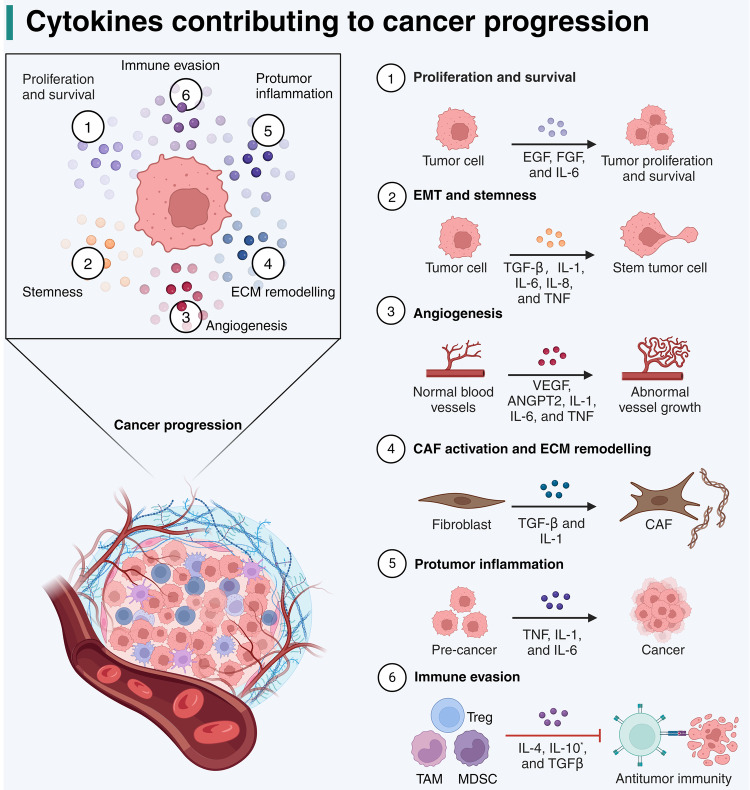Fig. 1.
Mechanisms of action of cytokines contributing to cancer progression. This figure illustrates the multifaceted roles of cytokines in cancer. The central diagram shows a tumor microenvironment with key processes labeled 1 through 6, indicating different aspects of cancer progression influenced by cytokines. Firstly, cytokines such as EGF, FGF, and IL-6 promote the proliferation and survival of tumor cells. Secondly, TGF-β, IL-1, IL-6, IL-8, and TNF contribute to the epithelial-mesenchymal transition (EMT) and maintenance of stemness in tumor cells, facilitating a more invasive phenotype. Thirdly, VEGF, ANGPT2, IL-1, IL-6, and TNF drive the formation of new blood vessels (angiogenesis), supplying the tumor with nutrients and oxygen. Moreover, TGF-β and IL-1 are involved in activating fibroblasts to cancer-associated fibroblasts (CAFs) and in extracellular matrix (ECM) remodeling, which promotes tumor immune evasion and treatment resistance. Fifthly, proinflammatory cytokines like TNF, IL-1, and IL-6 create the dysregulated inflammation that can support tumor development and progression. Lastly, anti-inflammatory cytokines including IL-4, IL-10, and TGF-β are implicated in the suppression of CD8+ T cell activity and the accumulation of regulatory T cells (Treg), myeloid-derived suppressor cells (MDSC), and tumor-associated macrophages (TAM), which help the tumor evade immune surveillance. Notably, IL-10 generally suppresses immune response, but some studies suggest that it promotes the activation of tumor-resident CD8+ T cells. Adapted from “The Tumor Microenvironment: Overview of Cancer-Associated Changes”, by BioRender.com (2024). Retrieved from https://app.biorender.com/biorender-templates

